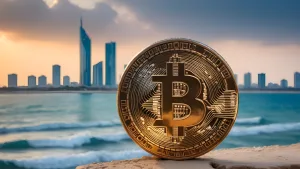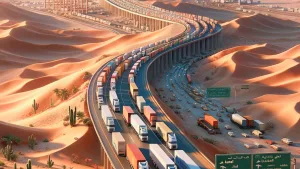The strength of the Israeli ecosystem is apparent, especially when considering its success compared to the size of its population
Ranking 3rd globally, Israel has advanced one spot since 2019. Israeli’s central hub continues to be the vibrant Tel Aviv, which remains high in the global city rankings while losing one place to Beijing.
However, there has been a narrowing of the gap between Tel Aviv and the cities ranked behind it, such as Berlin, Moscow, and Shanghai, which may show a minor loss of momentum in the city.
Jerusalem is ranked 2nd in Israel and 55th globally, an increase of 3 spots, and is the only other Israeli city in the top 100. While the gap between Jerusalem and Tel Aviv is still substantial, it is slowly narrowing.
Haifa has increased 35 spots to be ranked 143rd, and Beer Sheva has remained a top 200 city at 199th, although losing momentum and decreasing by 19 places.
In 2020, 3 new Israeli cities entered the rankings: Yokneam, Eilat, and Ashdod.
Yokneam, at 296th, is an incredibly inspiring case study of a small town relatively far from other cities in Israel that have received tax benefits and managed to use them in a cost-efficient way to create
a vital hub. It is a case that should be studied by ecosystem stakeholders in other towns looking to grow.
At 494th, Eilat is primarily focused on agro-tourism and has managed to create an exciting hub in the desert, far away from the other Israeli cities.
The final new entry is Ashdod, at 517th. Situated relatively close to Tel Aviv, Ashdod is emerging as an alternative location with a lower cost of living.
Startups Ranking
Tel Aviv and Jerusalem are the 1st, and 2nd ranked cities in the Middle East region, distantly followed by Dubai (ranked 99th), the only other Middle Eastern city in the top 100.
Regarding the business score component related to innovation, Israel drops in rank from the top 10 to 16th place, showing the extra distance it could go if only the business conditions were better.
Israel must make sure Tel Aviv remains a global hub in the face of growing competition. If it can do that, and at the same time try to grow Jerusalem and strengthen the rankings of other cities, it will be able to maintain its outstanding rankings in the future.
While the gap between Israel and the 4th place country is vast, its business score is ranked 16th, which shows that it is the business environment if there is anything to work on.
Israel Startup Ecosystem Overview
Israel is known as the “startup nation” for a good reason. It is a relatively small country that makes a substantial impact on the global startup ecosystem.
Israel is a shining example to other countries for several key reasons:
- It can become a global hub regardless of a complicated geopolitical situation.
- It shows the impact a high-quality ecosystem has on the economy. The Israeli startup ecosystem is a cash cow, generating tax revenue for the country on exits and high salaries.
- All this was done without public sector guidance. Fintech is broken in Israel; people still have to swipe their credit cards. Stripe, Revolut, and Transferwise are not operating in Israel, and if you are trying to get an Uber, you will have to wait for a long time since the service does not exist there. The only critical public sector policy which positively
impacted the local ecosystem was not done intentionally to boost the local startup ecosystem: the creation of the world’s biggest startup accelerator. However, that the Israeli public sector has done a commendable job of letting startups run loose early, without limitations and restrictions, in contrast to
many other countries whose ecosystems are riddled with bureaucracy and regulation. During the years, the Israel innovation authority came up with exciting programs to support local entrepreneurs with some success.
Israeli apps like Waze, Wix, Fiverr, and Viber make their mark around the world, but a few like Mobileye are outside the public eye yet are the real powerhouses in the ecosystem (Sold to Intel for $15 Billion).
There are a wide variety of verticals where Israel excels, from autonomous driving (Mobileye, Waze), advertising (Taboola), services (Fiverr), and much more. One vertical maturing and shows the substantial potential is cybersecurity.
COVID-19
Israel is also overperforming with its COVID–19 innovation, ranking globally at number 2. Haifa has overperformed in these specific rankings and is positioned at 39 globally. We take this opportunity to commend the efforts of both Hi-Center and WeWork in doing a great job to help the local startup ecosystem grow in this city. Also, in the COVID–19 rankings, Tel Aviv has slightly increased rankings globally to be ranked at an impressive 5th spot.
Were you interested in building an ecosystem resembling Israel? All you need are entrepreneurs who fit the Israeli profile: talented risk lovers excited about the projects they plan to build.















